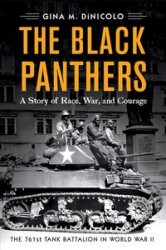The name Lenni Lenape, or Leni-Lenape, pronounced len-ee len-AH-pay, means “real people” or “people of the standard.” The tribe also is known simply as Lenape, “the people.” An alternate tribal name, common in history books, is Delaware. The latter name, given by the English, comes from the name of the river where many of the Lenape originally lived. The river itself was named after Thomas West, Lord De La Warr, the second governor of Virginia, in whose honor the state of Delaware is named.
The Lenape, sometimes called the Delaware Confederacy, consisted of numerous Algonquian-speaking bands who maintained distinct identities. The northern bands spoke the dialects known as Munsee (or Munsi, Muncie, or Muncey); the southern bands spoke the Unami dialect. A third dialect of coastal groups later came to be called Unalachtigo. Other ALGONQUIANS, such as the NANTI-COKE, called the Lenape “Grandfather” in their various dialects, because they considered Lenape territory the original homeland of all Algonquians.
The Lenape, classified as NORTHEAST INDIANS, placed their villages along river valleys. Lenape villages were dominated by one of three clans: tukwsi-t, the wolf; pukuwanku, the turtle; and pele’, the turkey. Each village was surrounded by sovereign hunting lands and fields of corn, beans, and squash. Houses were domed wigwams similar in style to IROQUOIS (haudenosaunee) long-houses.
An important ceremony of the Lenape is known as the Big House (Gamwi), lasting 12 days and involving a log structure symbolizing the universe, the lighting of a new sacred fire, and offerings to Misinghalikun, the legendary Guardian of the Game, for the purpose of renewal, good fortune, and tribal unity.




 World History
World History



![Road to Huertgen Forest In Hell [Illustrated Edition]](https://www.worldhistory.biz/uploads/posts/2015-05/1432477693_1428700369_00344902_medium.jpeg)





